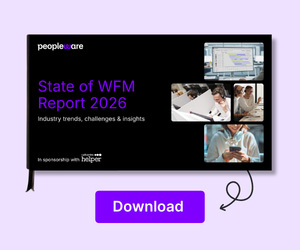Josh O’Farrell of Spearline explains what PESQ means and discusses the impact of poor audio quality.
PESQ Explained
PESQ stands for Perceptual Evaluation of Speech Quality. This technology is used by Spearline in its global in-country number testing.
This objective and recognized industry-standard audio quality measure takes into consideration characteristics such as:
- Audio sharpness
- Call volume
- Background noise
- Variable latency or lag in audio
- Clipping
- Audio interference
The test compares an audio output (at the phone line’s ‘listener’ end) to the original voice file (played on the ‘talker’ side) to create a fully unbiased and objective indicator of the actual audio being heard.
This is more accurate than other methods of audio quality measurement, which often rely on audio quality predictions based on network performance. PESQ returns a score from -0.5 to 4.5, with higher scores indicating better quality.
How to Tell What “Good” and “Bad” Sound Like
PESQ score definitions are typically grouped into six bands. The following audio samples for each band are real recordings of audio quality tests Spearline has run on customers’ international contact numbers:
- 1.00 – 1.99 No meaning understood with any feasible effort
- 2.00 – 2.39 Considerable effort required
- 2.40 – 2.79 Moderate effort required
- 2.80 – 3.29 Attention necessary; a small amount of effort required
- 3.30 – 3.79 Attention necessary; no appreciable effort required
- 3.80 – 4.50 Complete relaxation possible; no effort required
From the examples listed above, it’s very obvious how a customer could be frustrated and abandon a call where they experienced the audio quality of 1.11.
A conversation between both sides would be completely non-viable. Conversations ranging from 2.00–2.79 would improve only slightly but would involve constant: “Could you repeat that?” Or: “Sorry, I can’t hear you,” which would further delay any problem getting resolved, frustrating the customer and possibly leading to them abandoning the call.
It’s worth remembering, of course, that “good audio quality” can vary from one country to the next. What one might expect in Germany would be unachievable in Brazil.
But if you’re proactively measuring the audio quality you’re achieving, and checking that against a country-by-country benchmark, you can make informed decisions about which telecoms providers you use, and how you route your calls.
The Impact of Poor Audio Quality
When either your customer or your agent fails to connect with good telephone audio quality, the conversation will take longer to conclude, leaving both sides extremely frustrated and fatigued from such a terrible experience.
Not only that but your first call resolution/first-time fix rate is affected as well as average call times – with an immediate impact on your bottom line.
Audio quality can degrade and be lost for all manner of reasons. A common scenario is where a call between two parties transits multiple network providers, each having different network policies around transcoding and capacity management.
Telephone service quality can have significant cost implications for a business. Operational costs can escalate as call durations increase because conversations are hindered and key information must be repeated for accuracy.
Revenues can suffer as frustrated customers take their business elsewhere or new sales fail to materialize due to poor audio quality.
For more from Spearline and its contact centre solution, visit: www.spearline.com
Author: Guest Author
Published On: 9th Nov 2020 - Last modified: 25th Jan 2023
Read more about - Guest Blogs, Spearline















